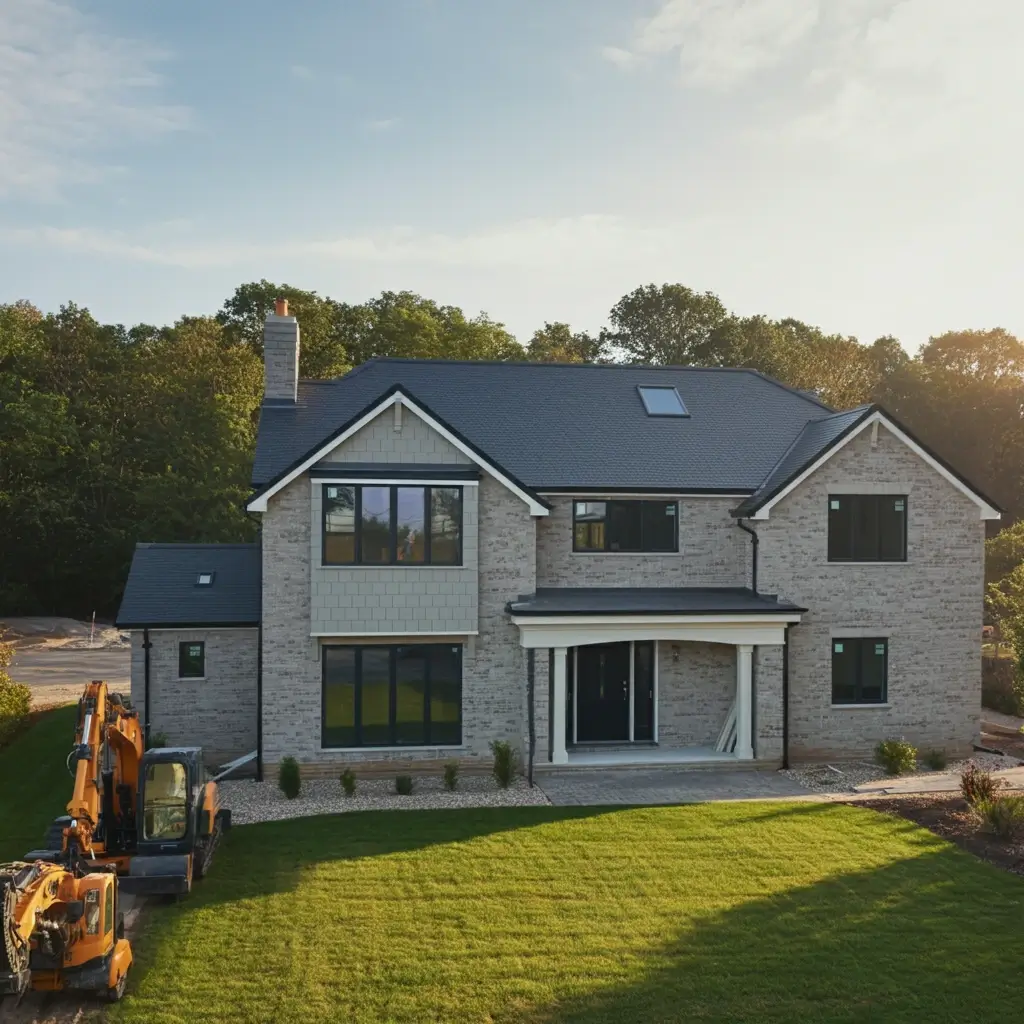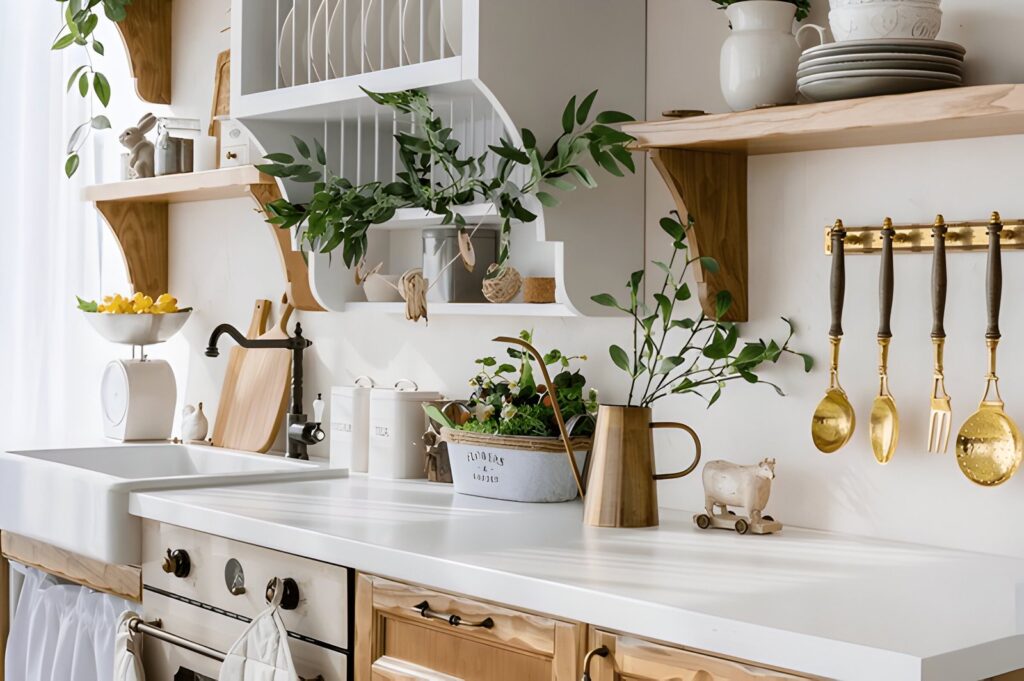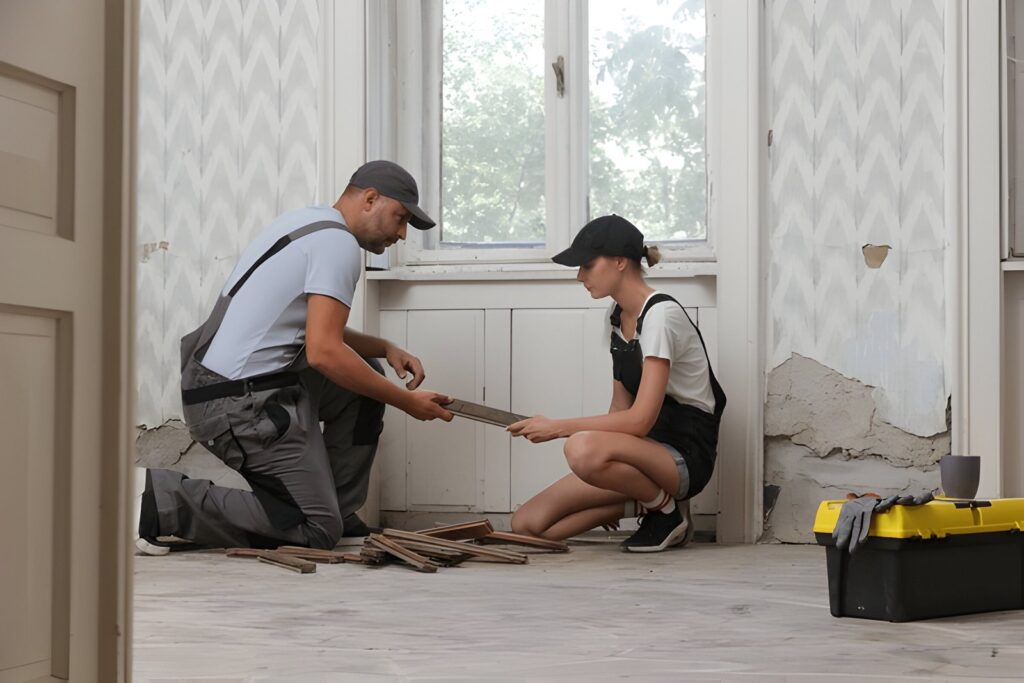Discover how this french couple designed their retirement house

1. Embracing the Dream of a Retirement Home
Building your dream retirement home is an exciting and significant milestone, yet it can also come with stress and anxiety. The vision of living in a space tailored to your needs and desires is motivating, but managing the complexities of construction can be overwhelming. Focusing on the big picture and understanding that this is a journey toward comfort and relaxation is key to minimizing stress during the process.
From deciding on floor plans to selecting materials, the choices are abundant. While these decisions are necessary, they can feel daunting, especially when considering long-term needs such as aging in place. It’s crucial to remember that each choice brings you closer to a home that suits your retirement lifestyle, one where comfort and ease are prioritized.
The initial excitement can sometimes give way to worry as construction progresses, but the key is finding balance. Break the process into manageable tasks and focus on making informed decisions, knowing that each step is bringing you closer to your dream. Adopting a proactive approach and partnering with professionals will help reduce anxiety and create an enjoyable experience.
2. Managing Expectations and Timelines
One of the major causes of stress during a home build is unrealistic timelines or unmet expectations. Setting clear and realistic expectations with your contractor from the start is essential. Work together to develop a comprehensive timeline that accounts for potential delays due to weather, material shortages, or labor issues. This approach can help you maintain peace of mind when things don’t go as planned.
It’s also helpful to prioritize certain aspects of the build. Identify what’s most important to you in terms of design, functionality, and materials. By focusing on key areas that align with your retirement goals, you can make sure the process stays centered on your needs rather than being sidetracked by less critical decisions.
Regular communication with your contractor is another key to managing stress. Make sure you’re getting updates and that any concerns are addressed quickly. Knowing what to expect and being involved in the process can alleviate anxiety, as you’ll have a clear understanding of how the build is progressing.
3. Partnering with Trusted Professionals
A significant part of minimizing stress lies in surrounding yourself with professionals you trust. Hiring a reputable contractor, architect, and designer can make all the difference. These experts not only bring experience to the table but also understand how to guide you through the challenges of building a retirement home. With their support, you can feel more confident that your dream home is in capable hands.
Look for professionals with specific experience in designing and building retirement homes. They’ll be familiar with the unique considerations of creating a space that’s functional for older adults, such as accessibility features and low-maintenance materials. Their expertise will help you avoid costly mistakes and future renovations.
Additionally, consult a financial advisor to ensure that your budget is aligned with the costs of the build. Having a clear financial plan in place will help ease concerns about unexpected expenses, allowing you to enjoy the process rather than worrying about overrunning your budget.
4. Prioritizing Your Health and Well-Being
Building your dream retirement home can be an all-consuming project, but it’s important to prioritize your health and well-being throughout the process. Practicing mindfulness techniques, such as meditation or deep breathing exercises, can be extremely helpful in keeping stress at bay. There are many resources available to guide you through simple exercises that can calm your mind and center your focus.
Another way to stay mentally and emotionally balanced is by making time for your favorite hobbies and activities. Don’t allow the home-building process to take over your life—schedule breaks to engage in things that bring you joy. Whether it’s spending time with family, gardening, or traveling, taking a step back will help you recharge and approach decisions with a clearer mind.
Physical activity also plays an important role in reducing stress. Incorporating regular exercise into your routine can improve your mood and help manage anxiety. Consider light exercises such as yoga, walking, or swimming to keep yourself feeling positive and energized during the home-building journey.
5. Staying Organized and In Control
One of the most effective ways to reduce anxiety while building your retirement home is to stay organized. Keep detailed records of all your contracts, payments, and correspondence with builders and suppliers. Having everything in one place will give you peace of mind and allow you to easily reference information when needed.
Many home-build management apps can help you keep track of the progress, costs, and timelines in real time. Using technology to stay on top of the project reduces the risk of surprises and helps you feel in control of the situation. These tools also allow you to communicate directly with your contractor and track any changes that may arise during construction.
Creating a well-organized checklist for each phase of the project can also help. Breaking down the build into smaller, actionable tasks ensures that you’re managing the process efficiently and not feeling overwhelmed by the bigger picture.
6. Budgeting for Peace of Mind
Nothing causes more anxiety than financial surprises during a home build. Sticking to a well-thought-out budget is crucial for reducing stress. Before construction begins, sit down with your contractor and financial advisor to outline every potential expense, from materials to labor to permits.
Building in a financial buffer for unexpected costs is a smart way to prevent stress. By setting aside funds for unforeseen issues, you’ll be prepared for any hiccups along the way without derailing your financial plans. It’s also helpful to explore cost-saving options, such as sourcing materials from sustainable suppliers or opting for energy-efficient systems that will reduce long-term costs.
Regularly reviewing your budget throughout the project will also ensure that you’re staying on track. If any issues arise, you’ll be able to address them before they become significant problems, keeping your financial health intact and your stress levels low.
7. Focusing on Long-Term Comfort
While the home-building process may be stressful at times, keep your eye on the end goal: creating a space where you can enjoy your retirement in comfort and peace. Building a home tailored to your needs means you’ll have a place designed to support your well-being and relaxation for years to come.
Think about the future when making design decisions. Opt for low-maintenance materials and systems that will reduce the need for future repairs or renovations. This approach will save you time, money, and stress in the long term, allowing you to enjoy a worry-free retirement in a home that’s designed for your lifestyle.
Ensuring your home is energy-efficient is another great way to reduce stress post-construction. By incorporating smart technology, you can create a home that’s easy to manage and cost-effective, making your retirement both enjoyable and financially stable.
8. Relying on Support Systems
Building your dream retirement home doesn’t have to be a solo journey. Lean on your friends, family, and community for emotional support throughout the process. Having a trusted circle of people who understand your vision can help you feel more secure and less overwhelmed when making decisions.
Consider hiring a project manager or consulting with a retirement community specialist. These professionals can provide insights on building a home that’s ready for retirement living, offering recommendations on accessibility, safety, and comfort that will reduce stress in the long run.
Additionally, joining online forums or retirement home-building groups can give you access to others who are going through the same process. Sharing experiences and advice with like-minded individuals can ease the pressure and remind you that you’re not alone in this journey
.
9. Taking Breaks and Celebrating Milestones
Building a retirement home can be a lengthy process, but it’s important to pause and celebrate the small victories along the way. Recognizing the milestones you’ve achieved—from laying the foundation to finishing the landscaping—can help boost your morale and keep you motivated.
Taking regular breaks is also vital. Stepping away from the project, whether it’s for a day or a week, can help you gain perspective and return to decision-making with a clearer mind. By pacing yourself and taking moments to appreciate your progress, you’ll be able to reduce stress and enjoy the journey of building your dream home.
As you reach each phase of the build, reward yourself for the hard work and dedication. Whether it’s treating yourself to a relaxing day out or spending quality time with loved ones, these celebrations will help you focus on the positives and keep the overall stress level manageable.
10. Enjoying Your Finished Retirement Home
Once the dust has settled and the last coat of paint is dry, it’s time to enjoy the fruits of your labor. Your dream retirement home is now a reality—a space that reflects your lifestyle, values, and needs. The stress and anxiety of the building process will fade as you settle into a home that’s been carefully crafted for your comfort.
This is the moment when all the planning, decision-making, and patience pay off. By staying focused on your long-term vision and managing stress effectively throughout the build, you’ll be able to truly enjoy your retirement home without the lingering effects of anxiety.
To ensure lasting peace of mind, continue to maintain your home with regular upkeep and repairs. With the right systems in place, your retirement home will remain a source of joy and relaxation for many years to come. You’ve built a haven where you can embrace your golden years with comfort, peace, and tranquility.




Comments are closed.